|
Martial law means two things in reality; first, that civilians can be tried under military law by military tribunals, and, two, military acting in place of local law enforcement. The former situation applies only to war/civil war and the second requires essentially widespread rioting and lawlessness, which we are indeed seeing all across the nation. In a situation like this, the military would be allowed to assist in restoring order.
Credible reports have indicated that third parties (Antifa, etc.) are exploiting the protests to engage in planned civil disobedience. At this time, the conditions for an active insurrection against the government is in place. Local police in many areas cannot guarantee safety or enforce the law. Many mayors and governors have refused to take effective action. The conditions to order federal troops in to restore order have been met in many localities. The need for military to supercede local government applies only when there is the “failure or inability of the legitimate government to exercise its functions on account of the military occupation, or the undesirability of allowing it to do so.” (FM 27-10) Ordinarily, National Guard troops have roughly the same powers as local police. When they are ordered into federal service, it's a whole new ballgame. The Constitution does not prohibit use of the military in civilian law enforcement. That is federal legislation, passed by Congress, in the wake of Reconstruction where the Army was the police in the South. Article 1, Section 9 of the US Constitution states, "The Privilege of the Writ of Habeas Corpus shall not be suspended, unless when in Cases of Rebellion or Invasion the public Safety may require it." Congress must approve of the suspension and that is unlikely in the current political climate. This act only applies in cases of war or rebellion; not a mere disaster. Per Ex parte Milligan, the Supreme Court ruled that "martial rule can never exist when the courts are open" and restricts martial law to places where "war really prevails." Unless the civil courts are not functioning, you cannot be tried by military tribunal, held to account under the UCMJ, or held indefinitely. That would be full martial law. The Posse Comitatus Act prohibits the military from engaging in law enforcement duties. This does not apply to state National Guard units on state missions (it does apply if the state guard is federalized). In 1992, during the Los Angeles Riots, the National Guard, Army, and Marine Corps were ordered into the city under the Insurrection Act, which does allow the military to engage in law enforcement. The current law does not include disasters as reason for deploying the military. The Insurrection Act requires specific circumstances to go into effect. In short, law enforcement must be unable (in this case) to enforce the law which thus denies equal protection of the law, guaranteed by the 14th Amendment, to citizens. One could imagine that because police are sick or have deserted, things get so dire that rampant rioting and looting threaten a city (or the nation). At that point, ordinary “crime” is so out of hand that it qualifies as “domestic violence,” on par with war. While this isn't exactly full "martial law," it can be considered a form of it. 10 USC §253 The President, by using the militia or the armed forces, or both, or by any other means, shall take such measures as he considers necessary to suppress, in a State, any insurrection, domestic violence, unlawful combination, or conspiracy, if it-- (1) so hinders the execution of the laws of that State, and of the United States within the State, that any part or class of its people is deprived of a right, privilege, immunity, or protection named in the Constitution and secured by law, and the constituted authorities of that State are unable, fail, or refuse to protect that right, privilege, or immunity, or to give that protection; or ...In any situation covered by clause (1), the State shall be considered to have denied the equal protection of the laws secured by the Constitution. 10 USC §254 Whenever the President considers it necessary to use the militia or the armed forces under this chapter, he shall, by proclamation, immediately order the insurgents to disperse and retire peaceably to their abodes within a limited time. Nevada Powers NRS 414.060 Powers and duties of Governor. 3. (g)(5) The conduct of the general public and the movement and cessation of movement of pedestrians and vehicular traffic during, before and after exercises or an emergency or disaster. (6) Public meetings or gatherings. National guard powers NRS 412.602 Right-of-way on public street and highway; penalty for interference. The Nevada National Guard in the performance of its military duties has the right-of-way over any persons or vehicles on any public street or highway of this state, except United States mail carriers, fire apparatus and other emergency vehicles. Any person who hinders or delays, or obstructs, the Nevada National Guard in the performance of its military duties is guilty of a misdemeanor.” No gun regulations/confiscation 42 US Code §5207 (a)Prohibition on confiscation of firearmsNo officer or employee of the United States (including any member of the uniformed services), or person operating pursuant to or under color of Federal law, or receiving Federal funds, or under control of any Federal official, or providing services to such an officer, employee, or other person, while acting in support of relief from a major disaster or emergency, may-- (1) temporarily or permanently seize, or authorize seizure of, any firearm the possession of which is not prohibited under Federal, State, or local law, other than for forfeiture in compliance with Federal law or as evidence in a criminal investigation; (2) require registration of any firearm for which registration is not required by Federal, State, or local law; (3) prohibit possession of any firearm, or promulgate any rule, regulation, or order prohibiting possession of any firearm, in any place or by any person where such possession is not otherwise prohibited by Federal, State, or local law; or (4) prohibit the carrying of firearms by any person otherwise authorized to carry firearms under Federal, State, or local law, solely because such person is operating under the direction, control, or supervision of a Federal agency in support of relief from the major disaster or emergency. (b)Limitation Nothing in this section shall be construed to prohibit any person in subsection (a) from requiring the temporary surrender of a firearm as a condition for entry into any mode of transportation used for rescue or evacuation during a major disaster or emergency, provided that such temporarily surrendered firearm is returned at the completion of such rescue or evacuation. (c)Private rights of action (1)In general Any individual aggrieved by a violation of this section may seek relief in an action at law, suit in equity, or other proper proceeding for redress against any person who subjects such individual, or causes such individual to be subjected, to the deprivation of any of the rights, privileges, or immunities secured by this section. NRS 414.155 Limitations on emergency powers relating to firearms. Pursuant to Amendment II of the Constitution of the United States and Section 11 of Article 1 of the Constitution of the State of Nevada, and notwithstanding any other provision of law, the emergency powers conferred upon the Governor and upon the executive heads or governing bodies of the political subdivisions of this State must not be construed to allow: 1. The confiscation of a firearm from a person unless the person is: (a) In unlawful possession of the firearm; or (b) Unlawfully carrying the firearm; or 2. The imposition of additional restrictions as to the lawful possession, transfer, sale, carrying, storage, display or use of: (a) Firearms; (b) Ammunition; or (c) Components of firearms or ammunition. This does not constitute, nor should be applied as, legal or professional advice. The first rule to avoiding a riot is to stay away. Avoid riots at all costs; "protests" too. Don't participate, don't drive through or near them. Here is some information regarding self-defense during a riot. Property crimes Deadly force is not permissible to stop a non-violent crime, such as shooting a burglar running away with stolen property. Please note, robbery involves force or fear and is a separate crime from a burglary, which is entering an occupied structure with the intent to commit a felony, usually theft. This video and the armed citizen's commentary is a good example of how to handle a potentially violent property theft. Pointing a firearm to deter a violent burglar as in the video would generally be permissible, but shooting without a threat of death or injury in such a case would not be. Brandishing Brandishing is defined as drawing a deadly weapon in a threatening manner, not in lawful self-defense, in the presence of two or more people (NRS 202.320). It is also a crime to aim a firearm at someone (presumably outside of lawful self-defense) (NRS 202.294). Justifiable Homicide"Stand your ground" and "castle doctrine" are two similar, but different concepts. "Stand your ground" applies to any place you can legally be and "castle doctrine" protects you at home. NRS 200.120* “Justifiable homicide” defined; no duty to retreat under certain circumstances. 1. Justifiable homicide is the killing of a human being in necessary self-defense, or in defense of an occupied habitation, an occupied motor vehicle or person, against one who manifestly intends or endeavors to commit a crime of violence, or against any person or persons who manifestly intend and endeavor, in a violent, riotous, tumultuous or surreptitious manner, to enter the occupied habitation or occupied motor vehicle, of another for the purpose of assaulting or offering personal violence to any person dwelling or being therein. 2. A person is not required to retreat before using deadly force as provided in subsection 1 if the person: (a) Is not the original aggressor; (b) Has a right to be present at the location where deadly force is used; and (c) Is not actively engaged in conduct in furtherance of criminal activity at the time deadly force is used. 3. As used in this section: (a) “Crime of violence” means any felony for which there is a substantial risk that force or violence may be used against the person or property of another in the commission of the felony. (b) “Motor vehicle” means every vehicle which is self-propelled. Commentary: Under this section, there is a question if "habitation" includes a business. Someone breaking into your home in a "violent, riotous, tumultuous or surreptitious manner" implies they are there to do harm to you and you are within your rights to suppress the threat before they get in. This is "castle doctrine." The use of the word "habitation" seems to imply the section applies to a home. This doesn't mean you can shoot at a hostile crowd that isn't forcing their way in. Someone shooting at you or someone throwing a Molotov cocktail is a different story. In a business, "no duty to retreat" would apply. You are legally present at your business or workplace, and as long as you didn't start the fight or doing anything illegal, you have no duty to retreat. The question would be, can you shoot rioters as they try to force their way inside? That would depend on what your could articulate your belief was about what they were intending to do. Again, you can shoot to safe life, but not to stop theft/looting. See NRS 200.130. You are permitted to shoot someone who is attempting to enter your vehicle to assault you (violently breaking through the window in a manner where you could be hurt; not someone breaking the rear window to mess up your car). NRS 200.160 Additional cases of justifiable homicide. Homicide is also justifiable when committed: 2. In the actual resistance of an attempt to commit a felony upon the slayer, in his or her presence, or upon or in a dwelling, or other place of abode in which the slayer is. Commentary: A felony "upon the slayer" would mean the bad guy is committing a felony against your person (robbery, rape, attempting to kill or seriously injure you). This does not mean simply steal from you. "In your presence" would include anywhere you legally were present. NRS 200.200 Killing in self-defense. If a person kills another in self-defense, it must appear that: 1. The danger was so urgent and pressing that, in order to save the person’s own life, or to prevent the person from receiving great bodily harm, the killing of the other was absolutely necessary; and 2. The person killed was the assailant, or that the slayer had really, and in good faith, endeavored to decline any further struggle before the mortal blow was given. In a VehicleKeep your doors locked and windows up. Keep your firearm in a secure, but easily accessible place. Consider where your gun is and what happens if you have to stop suddenly. Will it slide out of wherever and disappear under the seat? Keep moving. Moving slowly is faster than most people can walk/run in a riot. Don't get out of your vehicle unless it is disabled. Take off your seatbelt in case you need to make a quick escape (or draw your gun). If your car is hit with a Molotov cocktail, if the road is clear, accelerate quickly to a high speed to try and blow the fire out. If the fire continues, drive to a safe place and abandon the vehicle. Don't Run People Over Don't drive into people in a crowd. Avoid the crowd altogether. Hitting people with a vehicle would be considered assault with a deadly weapon, attempted murder, manslaughter, or murder. A defense based on self-defense may be difficult to argue. At what point are you in a bad spot and when are you in mortal danger? Watch videos of cars driving through riots. Usually, the crowd hits and vandalizes the car, even breaking windows. As the driver panics and tries to get out, they hit the gas and strike people. The crowd then gets more violent and starts trying to assault the driver or break windows with the intent to hurt the driver. If the crowd comes to you or you take a wrong turn, keep calm and get out of there. If you must keep moving, go very slowly (less than 5 MPH—a fast walking pace). Anyone in the way will be gently pushed rather than serious struck. Hopefully they will just get out of the way. Going slow will look better than going fast in court. People will probably be attacking your vehicle and will become more aggressive if you are driving through them. At this point, aggression may escalate to violence where self-defense would be appropriate. Example: if you car stops, rioters may force their way into your vehicle to beat or kill you. If you push your way through the crowd, go no faster than necessary, hitting no one with no more impact that necessary. Don't just stomp the gas pedal and plow through. Reversing instead of going forward may be the safest and fastest way out of danger. Certainly do not swerve into and hit people in the crowd. Difference Between Cops and CiviliansOnly police officers can use lethal force in suppressing a riot; not citizens. Citizens in a riot can only use resistance sufficient to prevent the offense (ex. you can't start pepper spraying the whole riot; only someone attacking you). NRS 193.230 You don't get to be a "Roof Korean" and shoot rioters for looting or etc. You can only use force against a specific threat to yourself or another. Being a sniper shooting rioters who might be harming someone else is a stupid idea and may be illegal or get you killed by police who don't know what's going on. There is a huge difference between being overhead cover for a group of armed citizens providing security and shooting people from the roof. Citizens cannot shoot a fleeing felon. Nevada Supreme Court in State v. Weddell found the use of deadly force to make an arrest was unreasonable without the threat of serious bodily injury to himself or others. The difference is that the public does not get to exercise the same benefit as law enforcement, because the statutes changed. State law had earlier been written (long repealed) to theoretically allow deadly force in the apprehension of a felon. THE HENDERSON COALITION FOR RESPONSIBLE GOVERNMENT Long story short, the Henderson Pavilion got trashed in a microburst a year or two ago. It can't be rebuilt as it was so the city proposed an indoor arena with a minor league team. The facility could be used for both. The "deal" was pretty much approved in secret by the city council and passed on the public as a fait accompli. The city is ignoring the residents who don't want a giant area there and the traffic of 6,000 people. Traffic at Green Valley and Paseo Verde sucks because the area is overbuilt. These nice folks are organizing a petition of Henderson voters to put the issue on the ballot to try and stop the city council. If you want to sign, they'll be at the pavilion Friday and Saturday, May 29 & 30. They need 2,100 signatures. What have we been saying? Then again, the kind of irresponsible jackwagons that do this don't bother reading helpful information or take precautions. Review-Journal Las Vegas, Sunday, May 24. The newspaper article is too generic for my taste. Reading in between the lines, it looks like a man starting beating his daughter, so the mom got involved. When the mom got involved, the dad turned on his wife and began to beat her. Mom had a handgun and shot her husband. Police are saying it appears to be self-defense. As you are aware, a recent musing of this blog piqued the interest of a woman (Quest Lakes) who writes for the RGJ. In her follow up emails, she asked us to reveal the . The following one is titled "boog bois." I think you missed my second email yesterday in our correspondence. I asked for the courtesy of knowing who I'm corresponding with - I am not hiding behind an anonymous group name. I'm also curious about your enthusiasm for the boogaloo (you responded that you're "a boogaloo fan." How do you define the boogaloo, and in what ways are you a "boogaloo fan"? First off, it's clear that she doesn't understand facetious humor; she started to run with the "boogaloo fan" joke. Secondly, no; we're not naive enough to allow ourselves be drawn further into this charade and forgo our anonymity. Why do we value anonymity? The travesty perpetrated against Richard Jewell should be enough of an answer. If they took these memes so seriously, what would they think of Unintended Consequences? Yes "Hi, this is Special Agent Barry Friendly of the ATF and we're concerned about people wearing Hawaiian shirts." LOL. |
Archives
June 2024
CategoriesBlog roll
Clayton E. Cramer Gun Watch Gun Free Zone The War on Guns Commander Zero The View From Out West |
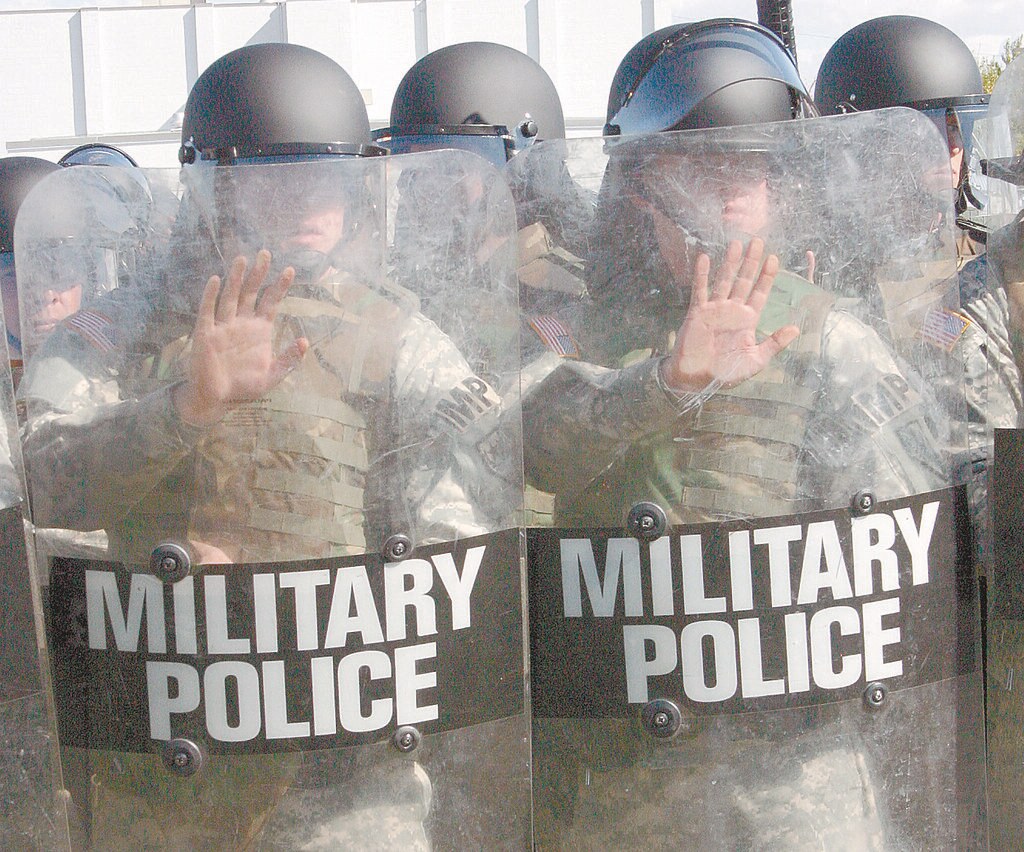
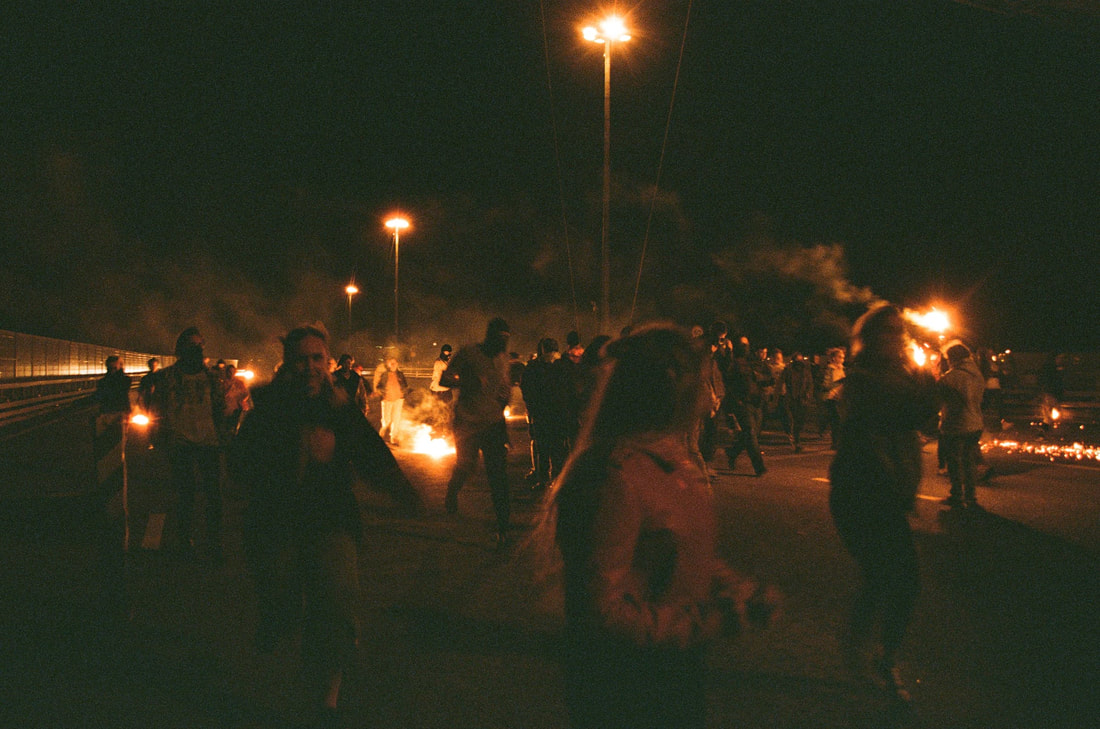

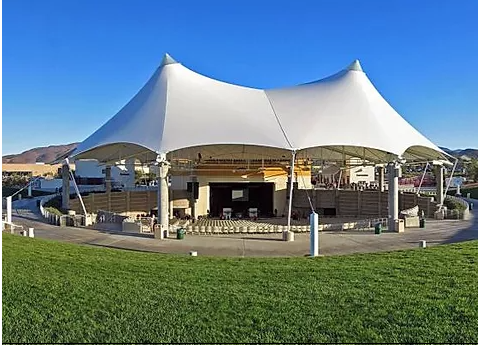
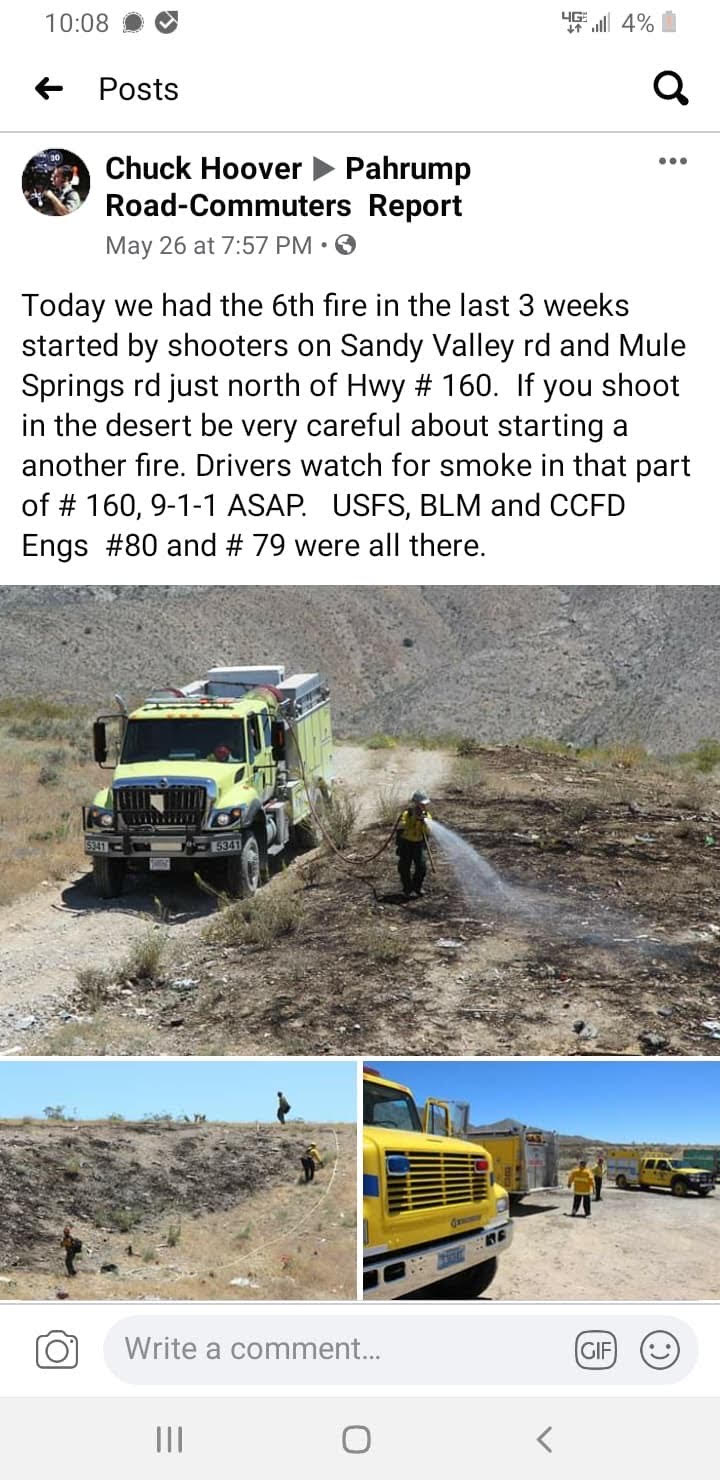

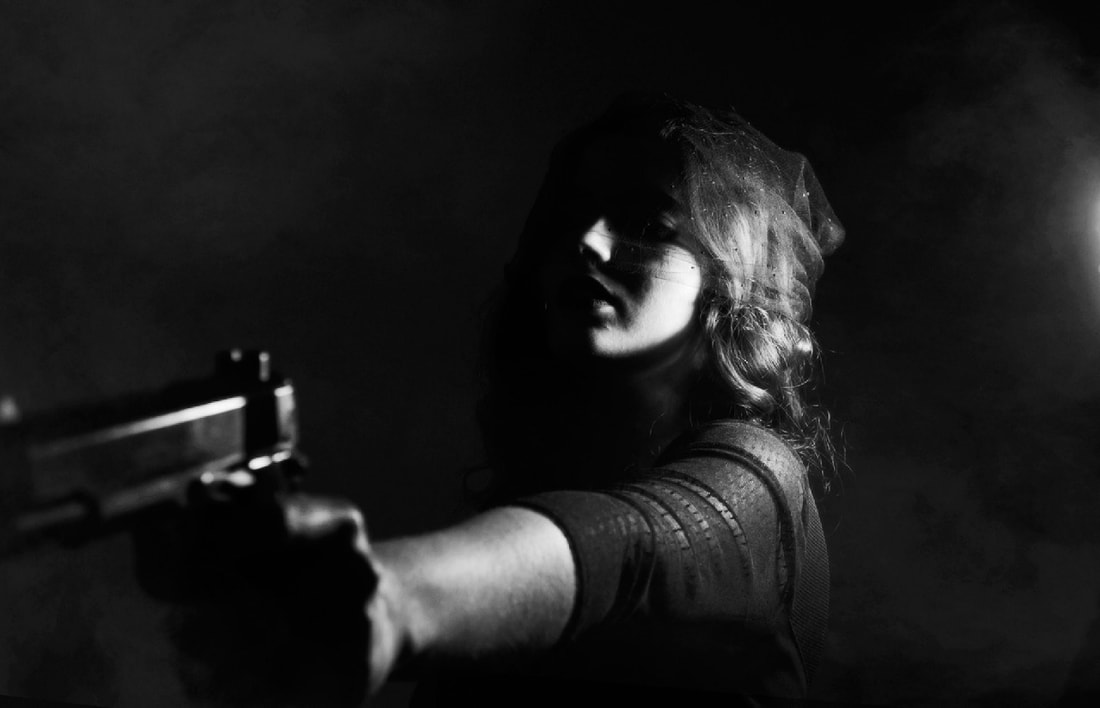
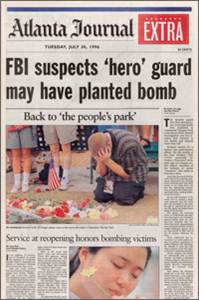
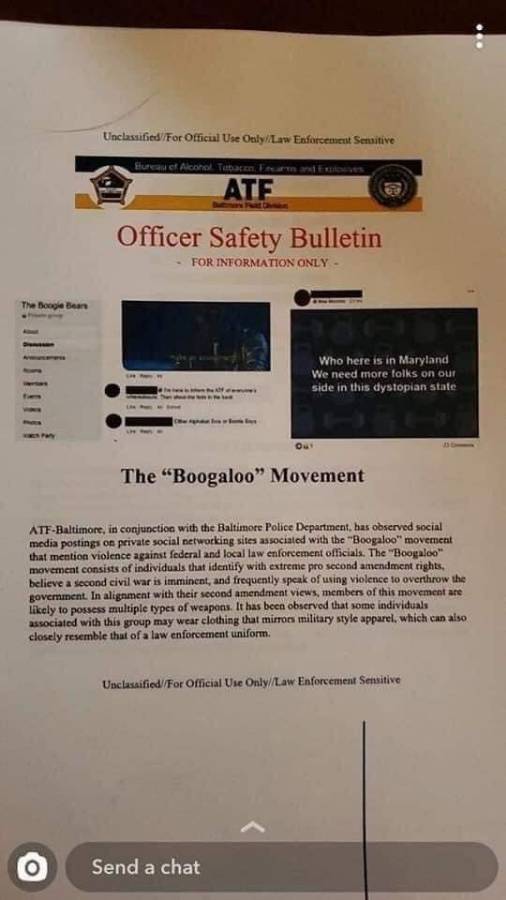
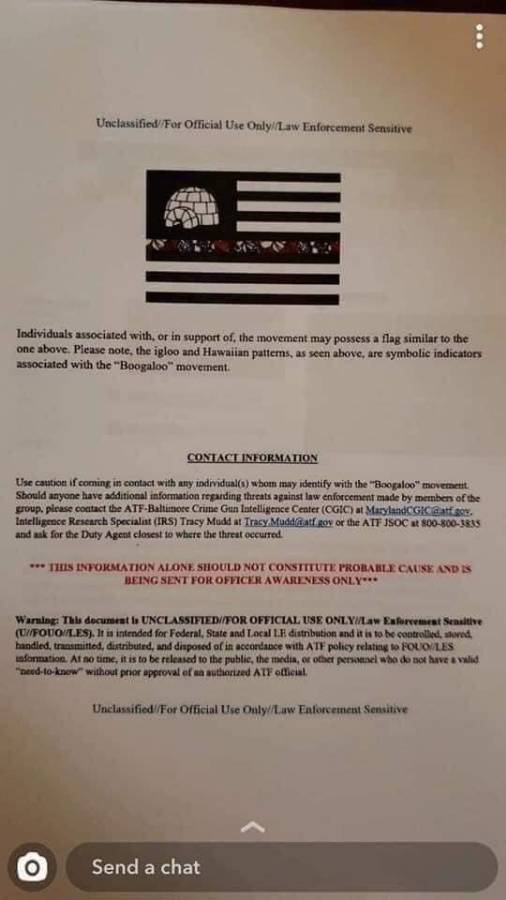
 RSS Feed
RSS Feed